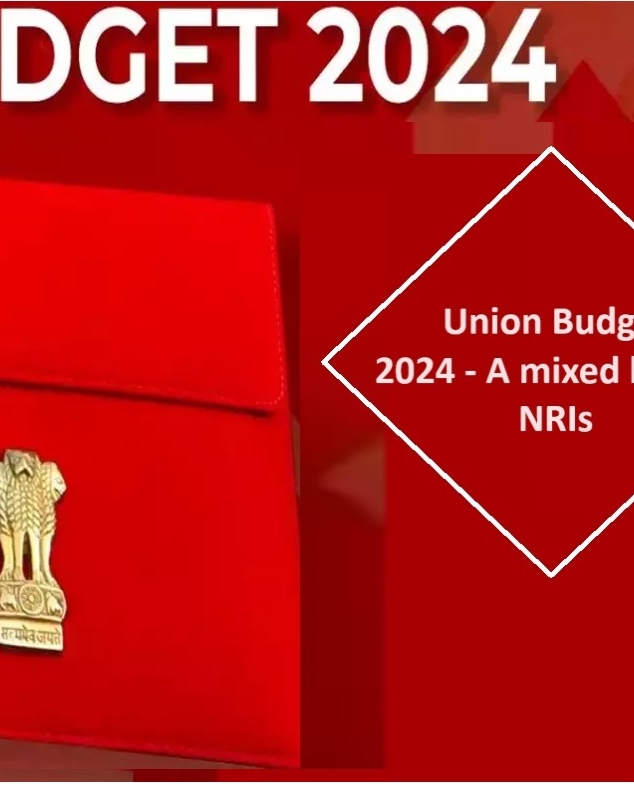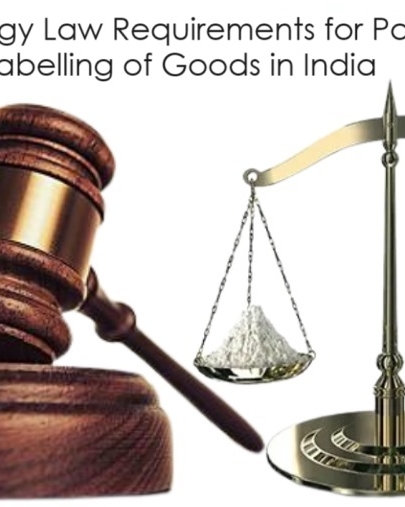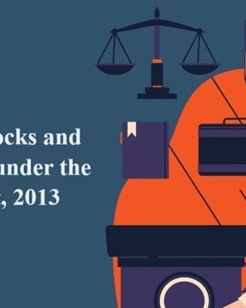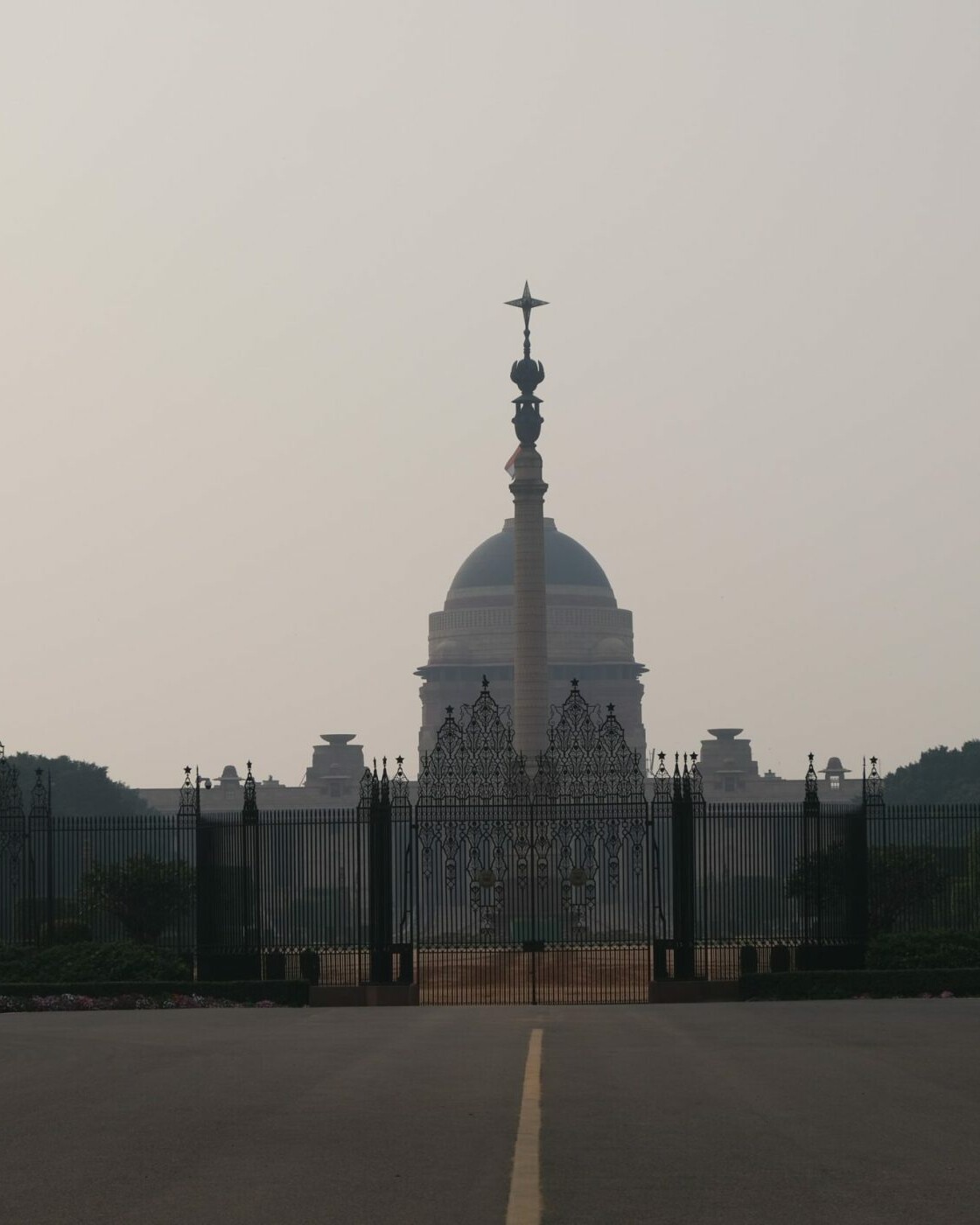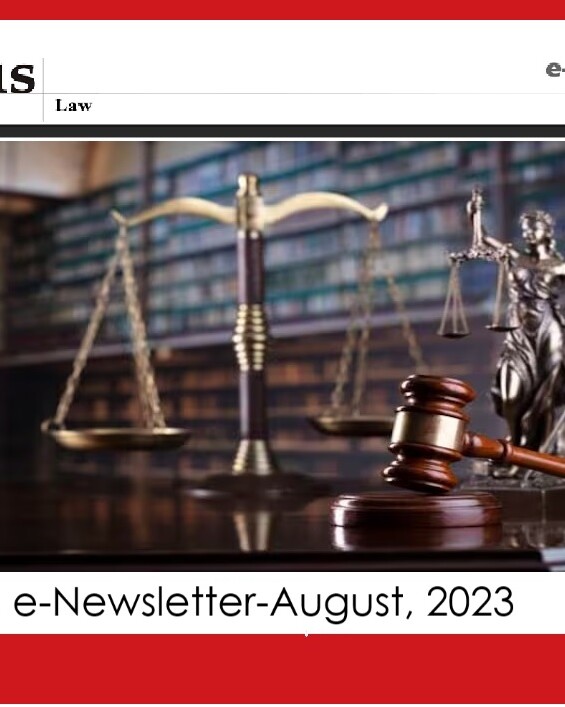
Highlights:
Corporate Brief
- Notification REGD. No. D. L.- 33004/99 dated 27.10.2023 issued by MCA pertaining to the Companies (Prospectus and Allotment of Securities) Second Amendment Rules, 2023.
- Notification no. RBI/2023-24/71 dated 25.10.2023 issued by RBI regarding presentation of unclaimed liabilities transferred to Depositor Education and Awareness (DEA) Fund.
- Notification no. RBI/2023-24/72 dated 26.10.2023 issued by RBI regarding framework for compensation to customers for delayed updation/ rectification of credit information.
- Notification no. RBI/2023-24/73 dated 26.10.2023 issued by the RBI pertaining to the Strengthening of Customer Service Rendered by Credit Information Companies and Credit Institutions.
- Notification no. RBI/2023-24/75 dated 26.10.2023 issued by RBI regarding review of Instructions on Bulk Deposits for Regional Rural Banks (RRBs).
- Notification no. RBI/2023-24/79 dated 30.10.2023 issued by RBI regarding Banking Regulation (Amendment) Act 2020- Change in name of Co-operative Banks.
- Circular no. SEBI/HO/MIRSD/SEC-FAFTP/P/CIR/2023/0170 dated 13.10.2023 issued by SEBI pertaining to Amendment to the Guidelines of Anti-Money Laundering (AML) Standards and Combating the Financing of Terrorism (CFT)/ Obligations of Securities Market Intermediaries under the Prevention of Money-laundering Act, 2002 and Rules framed there under.
- Circular no. SEBI/HO/IMD/IMD-TPD-1/P/CIR/2023/173 dated 20.10.2023 issued by SEBI regarding Guidelines for Business Continuity Plan (BCP) and Disaster Recovery (DR) of Qualified RTAs (QRTAs).
RERA Brief
- Notice dated 09.10.2023 issued by Maharashtra Real Estate Regulatory Authority (“MahaRERA”) ensuring timely application submission and adherence to guidelines for timely project registration during the Festive season.
- Order dated 25.10.2023 issued by Haryana Real Estate Regulatory Authority, Gurugram (“HRERA, Gurugram”) regarding restriction on representation of applicant promoters by unrelated parties during proceedings under Section 4, 5, 6 and 7 of Real Estate (Regulation and Development) Act, 2016 (“RERA Act”).
- Office Order dated 30.10.2023 issued by Uttar Pradesh Real Estate Regulatory Authority (“UP RERA”) regarding use of Hindi language for correspondence with UP RERA as per regulations.
NCLT Brief
- Status of homebuyers who are decree-holders as financial creditors under Indian Insolvency Regime.
Litigation Brief
- Flexibility in Trial stage: Section 65B Evidence Act certificate can be produced at any stage
- Constitutional Supremacy Vis-À-Vis Arbitration Law in India.
Corporate Brief
MCA Notification REGD. No. D. L.- 33004/99 dated 27.10.2023 pertaining to the Companies (Prospectus and Allotment of Securities) Second Amendment Rules, 2023 (“Amendment Rules”).
- The Ministry of Corporate Affairs (“MCA”), vide notification dated October 27, 2023, has amended Companies (Prospectus and Allotment of Securities) Rules, 2014. As per the amended rules, every public company which issued share warrants prior to commencement of the Companies Act, 2013 and not converted into shares shall (i) within a period of 3 months of the commencement of Amendment Rules inform the Registrar about the details of such share warrants in Form PAS-7 and (ii) within a period of six months of the commencement of the Amendment Rules, require the bearers of the share warrants to surrender such warrants to the company and get the shares dematerialized in their account.
- Every private company other than a small company shall: (i) issue the securities only in dematerialized form; and (ii) facilitate the dematerialization of all its securities, and every private company (other than small company) shall within 18 (Eighteen) months from March 31, 2023, i.e., till September 31, 2024, comply with the provisions.
- The Amendment Rules further provides as follows: (i) Every private company (other than small company) making any offer for the issue of any securities/bonus shares or buyback or rights offer shall before making such offer, ensure that the entire holding of securities of its promoters, directors, key managerial personnel has been dematerialized. (ii) Every holder of the securities of a private company (other than small company) will get their securities dematerialized before any transfer of such securities. Further, every subscriber of such securities shall ensure that they are held in dematerialized form before such subscription.
Notification RBI/2023-24/71 dated 25.10.2023 issued by RBI regarding presentation of unclaimed liabilities transferred to Depositor Education and Awareness (DEA) Fund.
- RBI vide the notification dated October 25, 2023 notified that Reserve Bank of India (Financial Statements – Presentation and Disclosures) Directions, 2021 (Master Direction) require commercial banks to present all unclaimed liabilities, where the amount due has been transferred to the Depositor Education and Awareness (DEA) Fund established under the DEA Fund Scheme, 2014, under ‘Schedule 12- Contingent Liabilities – Other items for which the bank is contingently liable’.
- To ensure consistency in presentation of financial statements, it is advised that all cooperative banks shall present all unclaimed liabilities (where the amount due has been transferred to DEA Fund) under “Contingent Liabilities – Others”
- These instructions are applicable to all commercial and cooperative banks for preparation of financial statements for the financial year ending March 31, 2024 and onwards.
Notification RBI/2023-24/72 dated 26.10.2023 issued by RBI regarding framework for compensation to customers for delayed updation/ rectification of credit information.
- In reference to the Statement of Development and Regulatory Policies released with the Bi-monthly Monetary Policy Statement and in exercise of the powers conferred by sub-section (1) of section 11 of the Credit Information Companies (Regulation) Act, 2005 (CICRA, 2005), the Reserve Bank of India has directed CICs and CIs to implement the compensation framework for delayed updation /rectification of credit information by CIs and CICs.
- The compensation framework shall come into effect six (6) months from the date of notification of the circular. RBI directed CICs and CIs to put in place necessary systems and processes to implement the compensation framework within this period.
- CICs and CIs which contravene or default in adherence to the above directions shall be liable for penal action as per the provisions of CICRA, 2005.
Notification no. RBI/2023-24/73 dated 01.10.2023 issued by the RBI pertaining to the Strengthening of Customer Service Rendered by Credit Information Companies and Credit Institutions.
- In exercise of the powers conferred by sub-section (1) of section 11 of the Credit Information Companies (Regulation) Act, 2005 (CICRA, 2005), the Reserve Bank of India has directed CICs and CIs to implement the directions on the following (i) Intimation of access to Credit Information Report and updation of credit information with Credit Information Companies, (ii) Setting up of Nodal points/ officials by CIs, (iii) Root Cause Analysis of the Complaints by CIs, (iv) Reasons for rejection of requests for data correction by CIs, (v) Periodic review of match logic algorithm by CICs, (vi) Ingestion of credit information data by CICs, (vii) Disclosure of Complaints and (viii) Easy access to Free Full Credit Report for the individuals by CICs.
- The directions shall come into effect six (6) months from the date of this circular. CICs and CIs are directed to put in place necessary systems and processes to implement these directions within this period.
- CICs and CIs which contravene or default in adherence to the above directions shall be liable for penal action as per the provisions of CICRA, 2005.
Notification Notification no. RBI/2023-24/79 dated 30.10.2023 issued by RBI regarding Banking Regulation (Amendment) Act 2020- Change in name of Co-operative Banks.
- RBI vide the notification dated October 30, 2023 notified that pursuant to the Banking Regulation (Amendment) Act (No. 39 of 2020), Sections 49B and 49C of Banking Regulation Act, 1949 (‘BR Act’) are applicable to Cooperative Banks.
- In terms of Section 49B, the Central Registrar of Cooperative Societies (CRCS)/Registrar of Cooperative Societies (RCS) shall not signify its approval to the change of name of any co-operative bank unless the Reserve Bank certifies in writing that it has no objection to such change. Further, in terms of Section 49C, no application for the confirmation of the alteration of bye-laws of a co-operative bank shall be maintainable unless Reserve Bank certifies that there is no objection to such alteration.
Notification RBI/2023-24/75 dated 26.10.2023 issued by RBI regarding review of Instructions on Bulk Deposits for Regional Rural Banks (RRBs).
- RBI vide the notification dated October 26, 2023 amended the definition of Bulk Deposit mentioned in the Master Direction- RBI (Interest on Deposits) Directions, 2016.
- RBI vide this notification the bulk deposit limit for Regional Rural Banks. Accordingly, “Bulk Deposit” for Regional Rural Banks would now mean Single Rupee term deposits of Rupees one crore and above.
Circular no. SEBI/HO/MIRSD/SEC-FAFTP/P/CIR/2023/0170 dated 13.10.2023 issued by SEBI pertaining to Amendment to the Guidelines of Anti-Money Laundering (AML) Standards and Combating the Financing of Terrorism (CFT)/ Obligations of Securities Market Intermediaries under the Prevention of Money-laundering Act, 2002 and Rules framed there under.
- Circular no. SEBI/HO/MIRSD/SEC-FAFTP/P/CIR/2023/0170 dated 13.10.2023 was notified by SEBI to enhance the effectiveness of the AML/ CFT framework and Mater Circular related to captioned subject bearing reference number SEBI/HO/MIRSD/MIRSD-SEC-5/P/CIR/2023/022 dated February 03, 2023.
- The Government of India also notified Prevention of Money-laundering (Maintenance of Records) (Second Amendment) Rules, 2023, which was published in the Official Gazette on September 4, 2023 (Notification G.S.R. 652(E)). The said amendments came into force on the date of its publication i.e. with effect from September 4, 2023.
- SEBI vide this circular has modified the Paragraphs in the Mater Circular related to Implementation of AML/ CFT measures, Implementation of the group wide programmes for dealing with the ML/ TF, Disclosures to be made by the Trustee in case of commencement of an account based relationship, Identification of beneficial ownership, Periodic Updates, Strict CDD Procedure, Politically Exposed Persons, Enhanced Due Diligence Measures and Appointment of Principal Officer.
Circular no. SEBI/HO/IMD/IMD-TPD-1/P/CIR/2023/173 dated 20.10.2023 issued by SEBI regarding Guidelines for Business Continuity Plan (BCP) and Disaster Recovery (DR) of Qualified RTAs (QRTAs).
- SEBI in exercise of powers conferred under Section 11 (1) of the Securities and Exchange Board of India Act, 1992 to protect the interests of investors in securities and to promote the development of, and to regulate the securities market has issued the framework for Business Continuity Plan (BCP) and Disaster Recovery (DR) for the qualified RTA’s (i.e. RTAs having more than 2 Crore folios) with the aim of strengthening overall resiliency, at / governance of QRTAs for handling disruption, augmentation of systems and practices to achieve better Recovery Time Objective (“RTO”) and Recovery Point Objective (“RPO”), and to improve overall preparedness by conducting periodic announced / unannounced drills.
- QRTAs are advised to submit their revised BCP-DR policy to SEBI within 3 months from the date of this circular.
- This circular shall supersede earlier circular no.SEBI/HO/MIRSD/DoP/CIR/P/2018/ 119 dated August 10, 2018 issuedon BCP-DR Policy of QRTAs.
RERA Brief
Notice dated 09.10.2023 issued by Maharashtra Real Estate Regulatory Authority (“MahaRERA”) ensuring timely application submission and adherence to guidelines for timely project registration during the Festive season.
- Vide this notice dated 09.10.2023, the Secretary, MahaRERA requested all promoters and stakeholders to submit project applications well in advance of their intended launch dates, keeping in mind the incoming festive season including Navratri, Dussehra and Diwali. These applications must be comprehensive and complete in all respects, adhering to the established guidelines in order to ensure timely processing and registration of projects. The notice also acknowledged that incomplete documentation is one of the primary causes of delays in project registration and urged all parties involved to be diligent and meticulous in preparing the required paperwork.
Order dated 25.10.2023 issued by Haryana Real Estate Regulatory Authority, Gurugram (“HRERA, Gurugram”) regarding restriction on representation of applicant promoters by unrelated parties during proceedings under Section 4, 5, 6 and 7 of Real Estate (Regulation and Development) Act, 2016 (“RERA Act”).
- In the said order dated 25.10.2023, it has been mentioned that HRERA, Gurugram, in compliance with the RERA Act, conducts proceedings under Section 4 of RERA Act for grant of registration for project, grant of extension of registration under Section 5 and 6 respectively and proceedings under Section 7 of RERA Act for revocation or for keeping the registration certificate in vogue. As per the said order, it was observed that unrelated parties, not directly associated with the promoters or their employees but recognized as professional intermediaries, were representing the applicant promoters.
- Vide this order dated 25.10.2023, HRERA, Gurugram ordered that only genuine promoters, co-promoters, BIP holders, or their authorized senior-level employees shall be allowed to attend the project hearings, with option to attend through VC. The said order shall also be applicable to visitors coming in the Planning Branch for processing of applications under sections 4, 5, 6, and 7 of the RERA Act and Real Estate Agents’ registration.
Office Order dated 30.10.2023 issued by Uttar Pradesh Real Estate Regulatory Authority (“UP RERA”) regarding use of Hindi language for correspondence with UP RERA as per regulations.
- The said office order dated 30.10.2023 mentioned that UP RERA shall conduct correspondence and other dealings in Hindi language, according to the provisions specified under Sections 8 and 9 of the Uttar Pradesh Real Estate Regulatory Authority (General) Regulations, 2019. If necessary, translation in English shall be submitted to UP RERA.
- As per the said order, the correspondence in Hindi by complainants/promoters and other stakeholders shall ensure that the general public gains comprehensive understanding of procedures and subject matter. Such comprehensive understanding shall enable a genuine grasp of issues and easier access to solutions. This shall facilitate ease and transparency for all parties involved in operations and foster a conducive environment for investment and communication.
NCLT Brief
Status of homebuyers who are decree-holders as financial creditors under Indian Insolvency Regime.
The real estate sector has exponentially boomed over past decades; however, it has suffered from unprecedented challenges in the wake of the COVID- 19 pandemic. As per the Report of Expert Committee which was constituted by Ministry of Housing and Urban Affairs to examine the issues related to Legacy Stalled Real Estate Projects, published in July, 2023, there are approximately 4.12 lakh stressed dwelling real estate units involving 4.08 lakh crores in these stalled real estate projects. The said Report further estimates that if 75% of the said stressed units are resolved, it will add to about three lakh units to the housing sector. The resolution of these stressed units will not only provide the much-needed respite to the estranged allottees but also significantly contribute towards economic growth of the country.
The Insolvency and Bankruptcy Code, 2016 (“Code”) has been enacted to resolve stressed entities with the aim to maximise the value of their assets in a time bound manner while balancing the interests of all stakeholders during the resolution process. Initially, the Code did not recognize the homebuyers of the real estate project as financial creditors or operational creditors, capable of initiating Corporate Insolvency Resolution Process (“CIRP”) proceedings of a real estate company.
In 2017, the CIRP proceedings of the real estate giant Jaypee Infratech Limited was initiated by the Hon’ble National Company Law Tribunal (“NCLT”) which caused hue and cry amongst the homebuyers as there was no legal framework to safeguard the repayments of their invested monies in the real estate projects. The distressed homebuyers of Jaypee Infratech Limited approached the Hon’ble Supreme Court in Chitra Sharma vs Union of India, as the amount of debts owed to the homebuyers which was paid by them as the advance to the corporate debtor was claimed to be more than what was due to the banks. In view of the prevailing legal framework, the banks were in more advantageous position than the homebuyers as only they were recognized as ‘financial creditors’.
The Hon’ble Supreme Court in Chitra Sharma (Supra) came to the rescue of the homebuyers in projects floated by Jaypee Infratech Limited and provided interim directions for appointment of the authorized representatives for representing the home buyers in the meetings of Committee of Creditors (“COC”) under Section 21 of the Code to espouse of the cause of the homebuyers and to protect their interests.
Homebuyers as financial creditors: A welcome move introduced in the Code
Following the move by the Hon’ble Supreme Court in order to absolve the grave injustice to the allottees who were getting no rights or recognition under the Code, the Insolvency and Bankruptcy (Amendment) Ordinance, 2018 (“2018 Ordinance”) was introduced which came into effect from 06.06.2018. Vide the 2018 Ordinance, the homebuyers were brought within the purview of financial creditors under the Code. Consequently, the Legislature in its wisdom brought about the Insolvency and Bankruptcy Code (Second Amendment) Act, 2018 (“2018 Amendment”) whereby the allottees for the very first time were given the stature of financial creditors under the Code. In the 2018 Amendment, an explanation was incorporated in the definition of ‘financial debt’ under Section 5(8)(f) of the Code which stated that any amount raised from an allottee under a real estate project shall be deemed to be an amount having the commercial effect of a borrowing. Hence, the outstanding debt owed to the allottees in the real estate projects was statutorily recognized as ‘financial debt’ and the allottees were brought within the purview of ‘financial creditors’.
The constitution validity of the aforesaid 2018 Amendment was challenged in the case of Pioneer Urban Land and Infrastructure Limited and Another v. Union of India and Others. The Hon’ble Supreme Court upheld the validity of the 2018 Amendment and, inter alia, held that the money raised by developers from the homebuyers is done with a profit-making motive and therefore, it has the commercial effect of a borrowing. Hence, the Hon’ble Apex Court included any amount raised from a allottee of a real estate project within the definition of ‘financial debt’ envisaged under section 5(8)(f) of the Code. The Hon’ble Apex Court also held that safeguarding interests of the homebuyers during the CIRP proceedings of a real estate developer is of paramount importance.
As an outcome of the 2018 Amendment, the homebuyers got the statutory rights as a ‘financial creditor’ to initiate the CIRP proceedings against the Corporate Debtor which opened flood-gates of the cases as even a single homebuyer could initiate the CIRP proceedings of an entire real estate company having multiple real estate projects. Thus, the 2018 Amendment granted unparallel powers to a single homebuyer to force an entire real estate entity into the shackles of CIRP thereby jeopardising the interests of the other homebuyers of the said real estate entity.
The threshold for initiating CIRP proceedings by Homebuyers
Further, in order to protect a financially viable real estate company from unwarranted resolution under the Code, the legislature introduced the Insolvency and Bankruptcy Code (Amendment) Act, 2020 (“2020 Amendment”) which amended Section 7 of the Code and introduced the minimum threshold to file an application under Section 7 of the Code against a corporate debtor. As per the 2020 Amendment, the CIRP proceedings can be initiated jointly, by not less than 100 of such allottees under the same real estate project or not less than 10% of the total number of such allottees under the same real estate project, whichever is less. The constitutional validity of the threshold to file the application under Section 7 of the Code by the homebuyers was upheld by the Hon’ble Supreme Court in Manish Kumar v. Union of India.
Position of homebuyers possessing decrees against the corporate debtor as creditors under the Code
Section 3(11) of the Code provides the definition of ‘creditor’ which means “any person to whom a debt is owed and includes a financial creditor, an operational creditor, a secured creditor, an unsecured creditor and a decree-holder.”
The Code does not provide for any definition for ‘decree-holder.’ Hence, it is relevant
to refer to Section 2(3) of Code of Civil Procedure, 1908 (“CPC”) wherein it is prescribed that a decree-holder means “any person in whose favour a decree has
been passed or an order capable of execution has been made”
The Hon’ble National Company Law Appellate Tribunal, New Delhi Bench in Sh. Sushil Ansal vs Ashok Tripathi, held that the homebuyers who are decree-holders under under the Real Estate (Regulation and Development) Act, 2016 (“RERA”) do not fall within the class of creditors classified as financial creditors and hence, they cannot initiate the CIRP proceedings under Section 7 of the Code in order to execute the decree.
In the case of Sri Subhankar Bhowmik vs Union of India & another, the issue for consideration before the Hon’ble High Court of Tripura, Agartala Bench was whether a ‘decree-holder’, as envisaged under Section 3(10) of the Code, falls within the definition of a ‘financial creditor’ as prescribed under the Code. The Hon’ble High Court observed that after the initiation of CIRP proceedings, the rights of the decree-holder to execute the decree against the corporate debtor freezes by the virtue of moratorium under Section 14(1)(a) of the Code which specifically prohibits the execution of judgment, decree or order in any court of law. Further, the Hon’ble Court was of the view that the Code has rightly recognized decree-holders as a separate class of creditors in Section 3(10) since the decree holders are subjected to the rigors of moratorium, there is a protective provision for the interest of a decree holder as their rights are crystallized through a decree after it attains finality. The Court held that the Code is a beneficial legislation which focuses on revival of a corporate debtor. To give the status of ‘financial creditor’ to the decree holder, who holds decree against the corporate debtor through an adversarial process of litigation in a process formulated with the sole intent to revive the said corporate debtor would defeat the very object and purpose of the Code. In view of the same, the Hon’ble Court upheld the distinction of decree holders as a separate class of creditors from ‘financial creditors’ and ‘operational creditors.’
Lately, the question whether homebuyers who are the beneficiaries of a decree are distinct from the other homebuyers or not, has been settled by the Hon’ble Supreme Court in Vishal Chelani & others vs Debashis Nanda. The Hon’ble Supreme Court in Vishal Chelani has held that the homebuyers who are the decree-holder would be recognized as ‘financial creditor’ as there can be no further classification in a class of creditor.
In the aforesaid case, the Appellants were the homebuyers who had obtained decrees of refund from Uttar Pradesh Real Estate Regulatory Authority (“UPRERA”) against Bulland Builtech Private Limited (“Corporate Debtor”). The Appellants had filed an application before the Hon’ble NCLT to direct the resolution professional to admit their claims in the category of financial creditors in a class / homebuyers and not as ‘other creditors.’ The Hon’ble NCLT dismissed the application with a view that after obtaining the recovery certificate from UPRERA, the Appellants are to be treated as financial creditors and not as creditors in a class and the same was upheld by the Hon’ble NCLAT.
Being aggrieved by the order of NCLAT, the Appellants knocked the doors of the Hon’ble Supreme Court. The key observations of the Hon’ble Supreme Court regarding the status of homebuyers who have obtained decree in their favour are as follows:-
- Section 5(8)(f) of the Code does not mention any distinction between different classes of the financial creditors.
- To treat a particular segment of a class of financial creditors differently from others on the ground that one or some of them had a decree of recovery in their favour would be highly inequitable.
- Passing of a decree only crystallizes the claim of the party and the same does not alter the status of the concerned party.
Hence, in view of the aforesaid observations, the Hon’ble Supreme Court set aside the order of Hon’ble NCLAT and the Appellants who were the homebuyers having decree of recovery in their favour, were declared to be at par with the other homebuyers/financial creditors in the resolution process.
One crucial aspect that needs to be noted is that a homebuyer pays substantial sums of money to the developers for purchasing the units in capacity of a ‘financial creditor’ as there is consideration for the time value of money. The ruling in the Pioneer Urban Land and Infrastructure Limited (Supra) recognizes the rights of the homebuyers as ‘financial creditors’ and also its rights to pursue other remedies such as under RERA and the consumer protection laws in order to redress their grievances. It is trite to mention that the nature of claims and rights of the allottees are different from the other financial creditors such as banking and financial institutions. The allottees are majorly interested in getting the possession of their unit in which they have invested their hard-earned monies rather than recovery of the amount deposited with the corporate debtor.
If the homebuyers obtain the decree of recovery of amounts against the developer and in the meanwhile, the developer falls into the knell of CIRP proceedings, the money still remains in the possession of the corporate debtor as execution of the judgment, order and decree is barred in light of the moratorium. The decree merely crystallizes the claim of the homebuyer and the money disbursed by the allottee continues to be in the possession of the corporate debtor. Hence, the same would not change the position of the homebuyers from ‘financial creditors’ to ‘other creditors.
In our opinion, a homebuyer should not be classified as an ‘other creditor’ merely because they have decided to exercise their legal rights and remedies available under law and obtained a decree of refund in their favour from RERA. Further, by no stretch of imagination a decree of refund issued by RERA in favour of a homebuyer should alter the underlying nature of the transaction, i.e., a financial debt duly disbursed by the said homebuyer against time value of money to a corporate debtor in hopes of getting possession of their respective unit. The homebuyers as financial creditors have representation in the COC through an authorized representative. A seat in the COC means that the homebuyers have a voice while deciding the outcome of the corporate debtor undergoing CIRP. Merely because a homebuyer has decree in his favour which cannot be executed against the corporate debtor on account of the moratorium under the Code, taking away the representation of a homebuyer in the COC by declaring him ‘other creditor’ is prima facie arbitrary and unjust.
In the nutshell, it can be said that insolvency resolution of a corporate debtor in a real estate sector is a different ball game than the corporate debtors engaged in other sectors. In a welcome move, the Hon’ble Supreme Court in the case of Vishal Chelani (Supra) has recognized and upheld the status of the homebuyers who are the decree-holders as ‘financial creditors’ under the Code.
Litigation Brief
Flexibility in Trial stage: Section 65B Evidence Act certificate can be produced at any stage
Case Title: State of Karnataka v. T. Naseer, 2023 SCC OnLine SC 1447
Court: Supreme Court of India
Factual Matrix:
- The present case is based on the serial bomb blasts which took place in Bangalore in 2008 wherein several police complaints were registered against many offences under the Indian Penal Code, 1860 (“IPC”), the Explosive Substances Act, 1908, the Prevention of Destruction and Loss of Property Act, 1981,the Prevention of Damage to Public Property Act, 1984 and the Unlawful Activities (Prevention) Act, 1967.
- Several electronic devices were seized at the instance of Accused No. 3 Sarafaraz Nawaz@ Seju @Hakeem during the investigation which were submitted before the Trial Court along with the additional chargesheet.
- The Trial Court held that the CFSL Report of the electronic devices was inadmissible in evidence in the absence of a certificate under Section 65-B of the Evidence Act, 1872 (“The Act”).
- Thereafter an application was filed in the court to allow the prosecution to recall M. Krishna (PW-189) and to produce the certificate under Section 65-B of the Act as evidence. The application was rejected by the Trial Court holding the same to be delayed. The order of the Trial Court was upheld by the High Court.
Issue in question:
- Whether the certificate issued under Section 65-B of the Act produced on 27.04.2017 was not admissible in evidence being delayed.
- Is a 65-B certificate required in case primary evidence is furnished?
Observation made by the Apex Court
- A bench comprising Justices Vikram Nath and Rajesh Bindal disapproved the Trial Court and High Court’s view and set aside the Karnataka High Court’s order refusing the prosecution to produce Section 65B Certificate in the trial.
- The judgment of Arjun Panditrao Khotkar v. Kailash Kushanrao Gorantyal, (2020) 7 SCC 1 was referred by the bench which said that “a certificate under 65-B of the Act can be produced at any stage if the trial is not over”
- The bench also opined on the judgment of Anwar P.V. v. P.K. Basheer, (2014) 10 SCC 473 which laid down that a certificate under Section 65B of the Act is not required if the electronic record is used as primary evidence.
- As held in State of Karnataka v. M.R. Hiremath, 2019(7) SCC 515, “the non-production of the Certificate under Section 65B of the Act is a curable defect”.
- It was observed by the Apex Court:
“Fair trial in a criminal case does not mean that it should be fair to one of the parties. Rather, the object is that no guilty should go scot-free and no innocent should be punished. A certificate under Section 65-B of the Act, which is sought to be produced by the prosecution is not evidence that has been created now. It is meeting the requirement of law to prove a report on record. By permitting the prosecution to produce the certificate under Section 65B of the Act at this stage will not result in any irreversible prejudice to the accused. The accused will have full opportunity to rebut the evidence led by the prosecution.”
Decision:
- The appeal was allowed, permitting the prosecution to recall the witness under Section 311 CrPC to produce the 65B Certificate.
Constitutional Supremacy Vis-À-Vis Arbitration Law in India.
IN THE MATTER OF: Lombardi Engineering Ltd v. State of Uttarakhand
(Pronounced by the Hon’ble Supreme Court on 06.11.2023 in the ARB. P. 43 of 2022)
Facts:
- The captioned Judgement has been passed in a Petition filed under Section 11 of the Arbitration & Conciliation Act, 1996 [‘A&C Act’] seeking appointment of an Arbitrator. The central issue in the instant case revolves around Lombardi Engineering Ltd. (a Swiss company’s) protest and opposition towards two peculiar provisions in the arbitration agreement entered into between the parties, i.e.,
a. ) The demand for a pre-deposit of 7% of the overall claim amount as a prerequisite for invoking the arbitration clause; and
b.) The discretionary authority granted to the Principal Secretary/Secretary (Irrigation) for the selection of a sole arbitrator.
- Lombardi Engineering entered into a contract (which was later novated into a tri-partite agreement) with the Uttarakhand Project Development & Construction Corporation Limited and the State of Uttarakhand for providing consultancy services and preparation of modified comprehensive and bankable detailed project report of Arakot Tiuni Hydro Electric Project on river Pabar. The project was valued at a sum of Rs. 1,39,45,000/- (Rupees One Crore Thirty-Nine Lakhs Forty-Five Thousand).
- In wake of various disputes between the parties, Lombardi Engineering invoked the arbitration clause and filed an Application under Section 11(6) of the A&C Act before the Hon’ble Supreme Court of India, praying for the appointment of an arbitrator.
Issues before the Court:
- Whether the court while deciding a petition filed under Section 11(6) of the A&C Act can check the validity of the Arbitration Clause on the anvil of Article 14 of the Constitution of India, 1951 (‘COI’)?
- Whether the Arbitration Clause of the contract is in conflict with the judgment of Perkins Eastman Architects DPC vs. HSCC (India) Ltd.[1] in so far as it allows unilateral appointment of an arbitrator?
Court Observation and Findings:
- Before adverting to the observations rendered by the court, it is imperative to set out the law laid down by the Hon’ble Supreme Court in the case of ICOMM Tele Limited vs. Punjab State Water Supply & Sewage Board[2] and K. Jain vs. State of Haryana & Anr.[3] ) in order to appreciate the controversy and the difference between the said cases. The Hon’ble Supreme Court in the case of ICOMM Tele (Supra), inter-alia, held as follows: –
- Requiring a pre-deposit as a condition for invoking an arbitration clause is in contravention of Article 14 of the Constitution because of its arbitrary nature.
- Imposing punitive damages or exemplary costs is dependent on the presence of prima facie evidence indicating frivolous litigation.
- Requiring a specific percentage of pre-deposit discourages parties from choosing Arbitration as a means of dispute settlement, thereby diminishing the efficiency of arbitration and imposing undue pressure of courts while increasing costs.
The Hon’ble Supreme Court, per contra, in the case of S.K. Jain (supra) held that an arbitration clause that required the party invoking arbitration to make a security deposit of an amount as a precondition for invoking arbitration, on condition that the said amount would be refunded to him if he succeeded in the action, as not illegal. The rationale behind such an observation was to curb inflated and frivolous claims.
- The judgment highlighted the preeminent position of the COI in terms of Kelson’s Pure Theory of Law on the basic norm that he called “Grundnorm” Kelsen’s Theory encompasses the understanding that the COI holds the highest authority among legal norms and serves as the foundational basis for the legal system. Relying upon this Theory within the hierarchy of legal sources, the Apex Court held that an Arbitration Clause can be subjected to the legal sources in the following hierarchy, a) The Constitution of India; b) The A&C Act and other laws; and c) the Arbitration Agreement in accordance with Section 7 of the A&C Act. In conclusion, the Court highlighted that an arbitration clause must adhere to the “operation of law“ for its legal enforceability, with the Constitution as being a pivotal component in this context. The Apex Court rejected the argument suggesting that consenting to a pre-deposit clause in the agreement takes away the right to challenge the same under Article 14 of the Constitution. And, thus, held that the pre-requisite of depositing 7% fee before invoking arbitration was in contravention of Article 14. This observation reinforces the law on the point that any contractual provision, including an arbitration clause, has to mandatorily align with the constitutional framework to ensure legality and protection of fundamental rights.
- The Hon’ble Supreme Court also considered and relied upon certain foreign court judgments on the subject. One specific case with respect to the point in issue was the celebrated ruling of the Hon’ble Supreme Court of Canada in the case of Uber Technologies Inc., Uber Canada, Inc., Uber B.V. and Rasier Operations B.V. v. David Heller[4]. In the said case, Mr. Heller, a driver with Uber was required to accept the terms of Uber’s standard form service agreement, which stipulated that to resolve any dispute through arbitration or mediation with Uber, the claimant would have to pay an up-front administrative and filing fee of USD 14,500.97. The Hon’ble Supreme Court of Canada, by a majority of 8:1, held that such pre-condition which virtually stops the Claimant to pursue an action under the garb of an agreement is unconscionable and unenforceable.
- With respect to the issue of unilateral appointment of an arbitrator, the Hon’ble Supreme Court of India reiterated its observations as held in the case of Perkins (Supra), wherein the Hon’ble Courttook the view that in an arbitration agreement the appointment of an arbitrator cannot be made unilaterally by one of the parties, even if the clause vests such power in the said party.
- While concluding, the Hon’ble Supreme Court appointed Retd. Justice V.K. Bist, the Former Chief Justice of the High Court of Sikkim, to serve as the sole arbitrator in the present case.
CONCLUSION
This groundbreaking decision establishes a precedent that reinforces the paramountcy of the Constitution within the context of arbitration agreements in India. It emphasizes the importance of upholding the integrity of the arbitration process. The judgment asserts that no agreement should compromise the fundamental principles enshrined in the Constitution. More pertinently, it emphasizes the notion that the right of access to justice should not be hindered by arbitrary prerequisites. The decision sends a clear message that constitutional values must prevail and should not be undermined by contractual arrangements, ensuring the sanctity of the arbitration process.
Even voluntarily provided blank cheque attracts presumption under Section 139 of NI Act.
Case referred- Judgment passed by Hon’ble Kerala High Court on 07.11.2023 in CRL.REV.PET No.1374 of 2010 ‘P.K. Uthuppu v. N.J. Varghese & Anr.’
The Hon’ble Kerala High Court in the abovementioned case has observed that even if a blank cheque was issued voluntarily in lieu of a payment, it would attract the presumption under Section 139 of Negotiable Instruments Act, in the absence of any cogent evidence to show that the cheque was not issued in discharge of any debt.
The fact of the matter was that the revision petitioner borrowed 4 lakhs from the respondent and towards the discharge of that debt he issued an Ex.P1 cheque assuring him that there would be sufficient funds in his bank account to honour the same. Subsequently, upon presentation of the said cheque, the same was dishonoured due to insufficiency of funds. Despite issuing Legal notice to the revision petitioner, the amount was still not paid owing to which a suit was filed under section 138 of the Negotiable Instruments Act. The Trial Court after examination of the facts and the presented evidence, declared the revision petitioner guilty u/s 138 of the NI Act. Accordingly, the revision Petitioner herein was sentenced to undergo simple imprisonment for six months and to pay a compensation of Rs. 4 Lakhs with interest at the rate of 9 % p.a. from the date of dishonour of the cheque.
The aggrieved petitioner approached the Appellate Court (Cr.Appeal No.213 of 2009) which in lieu of the existing facts and circumstances reduced the substantive aspect of the punishment from a simple imprisonment of six months to two months and the compensation amount was converted to a fine. Thereafter, the revision Petitioner filed a revision Petition alleging that the cheque was issued not for discharge of any legally enforceable debt. He further averred that as he had availed a loan for his vehicle from the financial institution, the said blank cheque was given as a security and on closing that loan, this documents were returned except the cheque and false case has been filed against him. While relying upon the decision in ‘Bir Sing v. Mukesh Kumar (2019)’, Justice Sophy Thomas observed:
“The onus to rebut the presumption under Section 139 of the N.I Act that the cheque has been issued in discharge of a debt or liability, is on the revision petitioner. Even if a blank cheque leaf is voluntarily signed and handed over by the accused, towards some payment, it would attract the presumption under Section 139 of the N.I Act, in the absence of any cogent evidence to show that the cheque was not issued in discharge of a debt”.
A meaningful reading of the provisions of the Negotiable Instruments Act including, in particular, S.20, S.87 and S.139, makes it amply clear that a person who signs a cheque and makes it over to the payee remains liable unless he adduces evidence to rebut the presumption that the cheque had been issued for payment of a debt or in discharge of a liability. It is immaterial that the cheque may have been filled in by any person other than the drawer, if the cheque is duly signed by the drawer. If the cheque is otherwise valid, the penal provisions of S.138 would be attracted.
The Court took into consideration all the materials and evidence on record adduced by revision petitioner and observed that the same were not capable of rebutting the presumption, in favour of the revision petitioner even by preponderance of probabilities. Accordingly, the Hon’ble High Court dismissed the revision petition and the decision of the Appellate Court was upheld.
***
Disclaimer:
For private circulation to the addressee only and not for re-circulation. Any form of reproduction, dissemination, copying, disclosure, modification, distribution and/ or publication of this Newsletter is strictly prohibited. This Newsletter is not intended to be an advertisement or solicitation. The contents of this Newsletter are solely meant to inform and is not a substitute for legal advice. Legal advice should be obtained based on the specific circumstances of each case, before relying on the contents of this Newsletter or prior to taking any decision based on the information contained in this Newsletter. ZEUS Law disclaims all responsibility and accepts no liability for the consequences of any person acting, or refraining from acting, on such information. If you have received this Newsletter in error, please notify us immediately by telephone.
Copyright © 2014 ZEUS Law. All rights reserved. Replication or redistribution of content, including by caching, framing or similar means, is expressly prohibited without the prior written consent of ZEUS Law.
[1] (2020) 20 SCC 760
[2] (2019) 4 SCC 401
[3] (2006) 6 SCC 204
[4] 2020 SCC OnLine Can SC 13







